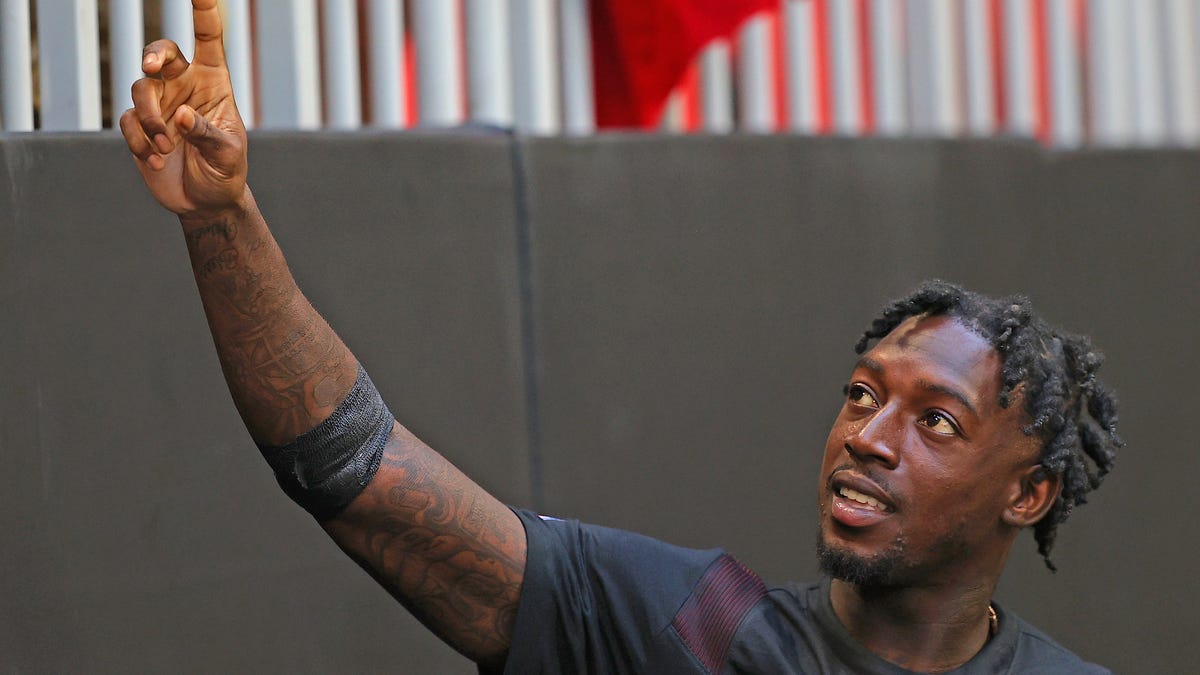America loves a dead celebrity

If you woke up this morning and hopped on social media, you probably saw that Robin Williams was trending on at least one platform. As often happens on social media, there doesn’t seem to be any real reason for Robin Williams to be top-of-mind for people today. It’s not his birthday, nor the anniversary of his death. And, as is typical when a beloved celebrity dies, Twitter was all aglow with delightful stories about kind things Williams did and the inevitable murmurings about how “it’s okay not to be okay” and “if only he’d gotten help.”
Just a few days ago, Anthony Bourdain was trending on Twitter for much the same reason, with much the same result. Twitter is never kinder than when someone is already beyond its reach.
Given America’s outpouring of understanding for Williams’ and Bourdain’s struggles, you might be surprised to know, then, that when Falcons wide receiver Calvin Ridley announced on social media that he was taking time away from the game to attend to his mental health, he was met with an extremely dissimilar reaction.
Observe:
G/O Media may get a commission
I could go on, but you get the idea. And of course, there were lots of people tweeting their support at Ridley, telling him to do whatever he needs to do and come back healthy and strong. But the mere fact that a not insignificant number of odious tweeters decided to respond to Ridley in the manner illustrated above proves one of my longstanding theories about Americans and our parasocial relationship with celebrities: Americans are much more supportive about someone’s mental health once that person is already dead.
How else can we explain the dichotomy between the Robin Williamses, Anthony Bourdains, and Kate Spades of the world as opposed to those who are actively working on their mental health, like Naomi Osaka, Calvin Ridley, and Simone Biles? Of course, Americans love to join our neighbors to the north on #BellLetsTalk day and put on a good show when it comes to supporting mental health awareness, just not, you know, during the NFL season. Or the Olympics. Or, God forbid, a grand slam tennis tournament. Just not when we’re relying on you to entertain us at a pre-determined event or when you’re on our fantasy team. Or due at a public appearance. Or when we tweet at you.
Is that really so hard?
You see, Americans view athletes differently than we do movie stars or artists or successful businessmen. Famous non-athletes worked hard for everything they have and are deserving of every benefit of every single situation. It’s the closest thing we have in America to the Divine Right of Kings. Athletes, on the other hand, merely won the genetic lottery, play a kid’s game, and should be grateful for what they have. Being grateful doesn’t mean giving back to your community or sharing your wealth, it means being available to us, the fan, every single time you’re supposed to entertain us, and that includes agreeing to whatever salary your team’s owners determine you are worth. Because, after all, billionaires are non-athlete celebs and therefore inerrant.
And if you think part of that entitled demand for athletes’ labor has to do with a large percentage of them being Black, you’re right. Imagine the difference in some of these Twitter responses if it were Tom Brady or Drew Brees who had to take time off to care for their own mental health. Something tells me it would all go down differently.
According to the National Institutes of Health, more than one in four Americans over the age of 18 suffers from a diagnosable mental health disorder in a given year. Anxiety. Depression. Bipolar disorder. OCD. You name it, we’ve got it. A lot of us have got it, including the author of this piece, who has been in treatment for anxiety and depression off and on for 20 years. Suffice it to say, mental illness is a huge problem in this country. Yet the stigma surrounding mental illness prevents a large number of Americans from seeking the help they need.
Maybe we could, you know, support those who need mental health care while they are still with us and working on their issues, rather than after they’ve taken their own lives? I know that’s harder to do than slapping a #RIP hashtag at the end of a tweet.
Knowing that, we should be collectively standing up and cheering anyone in the public eye who normalizes seeking help, and that includes Bucky and Sam going to couples’ counseling in The Falcon & Winter Soldier.
Of course, none of us know what exactly is going on with Ridley, whether he’s dealing with a diagnosable mental illness or something else entirely, but the mere fact that he recognizes that there’s a problem, admits that what he’s doing now isn’t working for him, and is committed to prioritizing his mental health over everything else should be lauded by everyone.
Everyone.
Because chances are, if you don’t wind up having to deal with your mental health at some point in your life, someone you love will. So hats off to Calvin Ridley, Simone Biles, Michael Phelps, Naomi Osaka, and every other athlete out there leading the way not just on the field, but off it, as well.
And no one cares about your stupid fantasy team, Chad.
For all the latest Sports News Click Here

